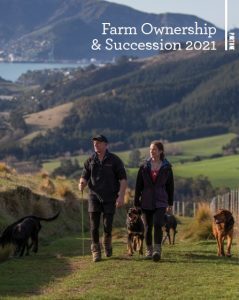 Hate to say it, but farmers are too lax when it comes to farm succession, rural lawyer Richard Parkes says.
Hate to say it, but farmers are too lax when it comes to farm succession, rural lawyer Richard Parkes says.
Parkes has worked with many South Island farmers, particularly in the high country, and has a particular interest in assisting farming families with farm succession plans and “asset protection structures”.
He has seen plenty of good plans and good results, but also plenty of farming parents that delay with all their might on the question of succession. And some of it comes down to reluctance to pay for advice, he says.
“It’s not so much that they can’t be bothered, it’s just that they don’t want to have to think about it. And I don’t think it’s about mortality, I just think they think ‘oh, that’s a long way off. I’ve got other things to be worried about right now.”
So, even though the universal advice is ‘get onto it early’, many farmers are just lackadaisical about it, he says.
Then again, Parkes sees a farming demographic that’s shedding sentimentality about succession.
“I know plenty of farmers, especially those in their 40s and 50s, who are of a new generation who don’t think that they need to be a caretaker and hand the farm over to the child. They’re telling their children now, while they’re at school, ‘listen, we are farming now but we are going to sell this farm and enjoy our retirement. Don’t expect to come back to the family farm’.”
Other farm owners may decide that since none of their kids are ‘looking likely’ to take over, they’ll look at bringing in equity partners. “Some young person who is capable buys in five or 10 percent, and then over time that person buys more and more. And everyone knows that eventually they’ll either buy it out, or the farm will be sold. And everyone gets their shareholding.”
If more traditional family succession is on the table, Parkes strongly recommends families create a company to hold shares in trust. Children should start building wealth early – straight after school is best – so that parents or a trust can progressively sell shares to succeeding offspring. “You have to start with that, because if you don’t start with that, you’re really nowhere. Even though [a takeover] is not going to happen for several years, at least it’s there on their radar as to how it’s going to eventually happen.”
If there are three kids on the family farm, for instance, the eldest child might spend their first few adult years at university or take up farm work. “At that point in time, when that kid’s 18 or 19 years old, then that kid should be thinking about how they can develop some wealth to be able to possibly buy shares off their parents.”

Shepherding or other jobs should be a first step to that equity-building, rather than simply part of CV-building or even biding time till a return to the home farm, Parkes says.
“Maybe he or she goes out as a mechanic, it doesn’t matter, because they’re in a job. And what they should be doing is buying a house or buying a dairy herd as a sharemilker. They should be borrowing money, based on their salary, to try and build their wealth.”
Farming kids may be better positioned to build wealth at a young age than a debt-laden university student chasing a white-collar career. Even if a farming son or daughter needs help with a deposit on a house, they have an asset that’s increasing in value. After a decade or so, the children might be able to get serious about buying into the family business.
By then, parents should have “a semblance of a plan” for succession, including figuring out the next step in their own lives.
“Even if it doesn’t pan out, at least they’ve got the start of a plan because they’ve got the company, they’ve got the shareholding and they’re saying to their son, daughter or whoever it might be ‘this is the rough plan and this is how it’s going to work’.”
The best decision may be that succession isn’t realistic because the farm isn’t profitable enough, or the kids aren’t ready and able to take it on.
Inevitably, relationships and plans come unstuck. Parkes said in this situation, his inclination would be to try to keep pushing on with talks after perhaps “letting the dust settle for a few months while people get themselves together”.
He recommends farmers appoint an independent facilitator – not a rural professional and not a lawyer, though he had facilitated talks himself when he knew a family well. “It’s got to be somebody who has a reasonable relationship with the family and has the skills to be able to get information out of each of the parties, in a way that gets it all out on the table. There needs to be a lot of trust,” he says.
Often, agreeing on a plan comes down to seeing another person’s point of view.
“The son might be saying ‘I want to be able to get on the farm and the parents are saying ‘that’s all well and good, but you’ve got no money to start buying in and we want to be able to retire from the farm and live a reasonable life’.”






